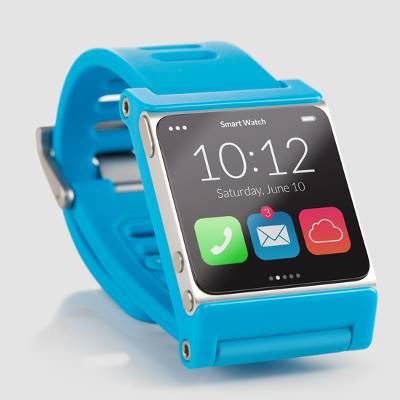Have any question?
Text or Call (954) 573-1300
Text or Call (954) 573-1300
Children are the future, as the saying goes, so do we really want the future to be taught using tools from the past? While some schools are still using technology that better belongs in the 20th century, others are embracing innovation and teaching in ways that better translate to the “real world.” Let’s take a look at how our evolving technology is transforming the classroom and explore some ways to get it to more students.
Humankind has always adapted and improved technology to make life easier, starting all the way back at fire and the wheel. Nowadays, our approach to making life easier through technology is centered around productivity and security - if we can accomplish more than before in the same amount of time, without worrying that it will be stolen, we’re happy.
You might see 3G and 4G on your mobile devices and wonder what it all means. If so, we have an answer for you, and just in time for a brand-new iteration: 5G. With this new technology on its way, it’s time to take a look at what exactly 5G should be capable of, and how it can differentiate itself from its predecessors.
At the International Consumer Electronics Show (CES), new products (and the technologies that fuel those products) are put on display to give industry professionals a look to see what companies are working on. At CES 2018, held in Las Vegas, Band and Olufsen introduced their speakers-as-art-concept, Samsung unveiled a 146” television that is designed to take up a wall, and many companies, including Aura, introduced new smart home security products that are sure to get an intruder’s attention (over Wi-Fi).
Data storage is such an important part of today’s business environment, but when was the last time you took the time to consider technologies that came before? Technology that exists today couldn’t possibly have existed 50, or even 20 years ago. How have the leaps and bounds made in the tech industry affected the status of data storage, and what does this trend mean for small and medium-sized businesses?
Every time that you purchase a new piece of business technology, you’re faced with a choice: go with a product that’s been around for awhile, and thus, is cheaper, or pay a little extra for the latest solution. We like to encourage business owners to go with the latest tech because it saves them money in the long run - an IT concept known as “future proofing.”
 Your business’s wireless Internet connection is one of its most valuable assets, and without it, your operations would surely suffer. Your wireless technology, like smartphones, tablets, laptops, and even your network depend on it in order to function properly. WiFi is known to be pretty inconvenient at times due to questionable connections and security, but a new technology wants to change all of that: Li-Fi, wireless Internet connections delivered by special light bulbs.
Your business’s wireless Internet connection is one of its most valuable assets, and without it, your operations would surely suffer. Your wireless technology, like smartphones, tablets, laptops, and even your network depend on it in order to function properly. WiFi is known to be pretty inconvenient at times due to questionable connections and security, but a new technology wants to change all of that: Li-Fi, wireless Internet connections delivered by special light bulbs.
 In 1965, the technological landscape was much different from what we see now. The idea of having a small computer in your pocket in the form of a smartphone was but a distant dream. Now, it’s commonplace for all but the youngest of children to have a smartphone. How is this possible? Well, it’s all thanks to Moore’s law, which has led the development of new technology for the past 50 years.
In 1965, the technological landscape was much different from what we see now. The idea of having a small computer in your pocket in the form of a smartphone was but a distant dream. Now, it’s commonplace for all but the youngest of children to have a smartphone. How is this possible? Well, it’s all thanks to Moore’s law, which has led the development of new technology for the past 50 years.
 Wearable technology has dominated the tech headlines lately, and for good reason. The concept of having smart technology so easily accessible at any time is an attractive feature for many people. Some are patiently waiting for the public release of Google Glass later this year, along with many more attractive wearable technology options being released including Google's Android Wear.
Wearable technology has dominated the tech headlines lately, and for good reason. The concept of having smart technology so easily accessible at any time is an attractive feature for many people. Some are patiently waiting for the public release of Google Glass later this year, along with many more attractive wearable technology options being released including Google's Android Wear.
 The way media is being consumed by people has been changing rapidly for over 100 years. More and more, people are relying on a tablet or smartphone to watch movies, listen to music, and read periodicals and books. This particular change in technology is just one of many in the history of streaming media.
The way media is being consumed by people has been changing rapidly for over 100 years. More and more, people are relying on a tablet or smartphone to watch movies, listen to music, and read periodicals and books. This particular change in technology is just one of many in the history of streaming media.
 Google is so entrenched in the culture of the planet that we no longer say, "Search for it", instead, we say, "Google it." Most of us use Google products on a daily basis that go beyond its search engine. From tablets and smartphones running Android, to Google's Chromebook running Chrome OS, Google is directly competing with Microsoft and Apple for the world's business and affection.
Google is so entrenched in the culture of the planet that we no longer say, "Search for it", instead, we say, "Google it." Most of us use Google products on a daily basis that go beyond its search engine. From tablets and smartphones running Android, to Google's Chromebook running Chrome OS, Google is directly competing with Microsoft and Apple for the world's business and affection.
 Do you let the batteries in your mobile devices fully deplete before recharging? If so, then you may be doing this based on some scientific-sounding advice you once heard. This advice has been around for years, and battery technology has dramatically advanced, which makes us ask the questions, "Is it still necessary to fully deplete your battery before recharging?"
Do you let the batteries in your mobile devices fully deplete before recharging? If so, then you may be doing this based on some scientific-sounding advice you once heard. This advice has been around for years, and battery technology has dramatically advanced, which makes us ask the questions, "Is it still necessary to fully deplete your battery before recharging?"
 Consider for a moment the computer you're using right now. Does it have wires? If so, how thick is the monitor you're using to view this? How many gigabytes is your hard drive? How many Microsoft Works documents could you have fit on your trusty 16-gigabyte USB thumb drive?Computing has certainly come a long way in the last four-plus decades; and it's getting exponentially better by the day.
Consider for a moment the computer you're using right now. Does it have wires? If so, how thick is the monitor you're using to view this? How many gigabytes is your hard drive? How many Microsoft Works documents could you have fit on your trusty 16-gigabyte USB thumb drive?Computing has certainly come a long way in the last four-plus decades; and it's getting exponentially better by the day.
Learn more about what L7 Solutions can do for your business.
L7 Solutions
7890 Peters Road Building G102,
Plantation, Florida 33324